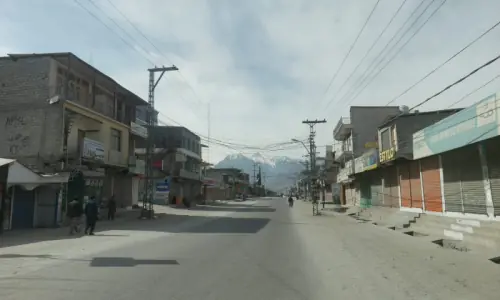ISLAMABAD: Unveiling the ‘Living Indus Initiative’ on Thursday, Federal Minister for Climate Change Senator Sherry Rehman on Thursday declared that flood-hit Pakistan will have to “find ways to revive natural routes of Indus river”.
Ms Rehman recalled that the cabinet had already approved the country’s largest Indus initiative, which is aimed at protecting the cradle of civilisations under serious threat from environmental degradation and anthropogenic activities.
Speaking at a media briefing, Senator Rehman unveiled the salient features of the project that she said had been conceived after thorough consultation with the academia, experts and provincial governments.
Calling Indus ‘mother of the nation’, she said the mighty river fed the entire agriculture and humanity living along it from the north to the south. “We will have to ensure development in harmony with nature, not against the nature,” she emphasised
The United Nations, she said, was assisting the ministry in preparing a report on Indus river to devise a well-thought-out strategy to initiate its “conservation and restoration as a living river”.
She underlined that nature, topography and biodiversity of Indus river changed with every area it passed by. “River Indus exploded after massive floods in 2010, and again during recent torrential rains. We will have to find ways to revive natural routes of Indus river,” she pointed out.
The minister said that 25 initial interventions and priority areas would be focused. “As we ensure climate resilient development and growth the access of adaptation will be our main focus,” she said.
The 25 priority interventions included developing nature-based resilience agriculture, salinity control, delta protection, Indus cleanup from industrial effluent, green infrastructure and ground recharge and groundwater governance.
She said the project would operate across the length and breadth of the country whereas private sector would be required to chip in finances as there was lack of resources. “Our resources have been diverted to humanitarian funds to rehabilitate flood victims. Climate adaptation and resilience funds have also been moved in this effort.”
The ministry, she said, would seek financing after humanitarian phase ended. “The Living Indus Initiative will cost $11-17 billion. We will try to manage it through fiscal facilities available. We will launch it at COP 27 as well,” she said.
Pakistan paid a huge cost in the agriculture sector due to heatwaves, she said, adding, “This is the matter of our survival. The shrinking size of Palla fish and other species is clear evidence of environmental degradation and habitat loss in the polluted Indus river.”
Published in Dawn, September 30th, 2022


































